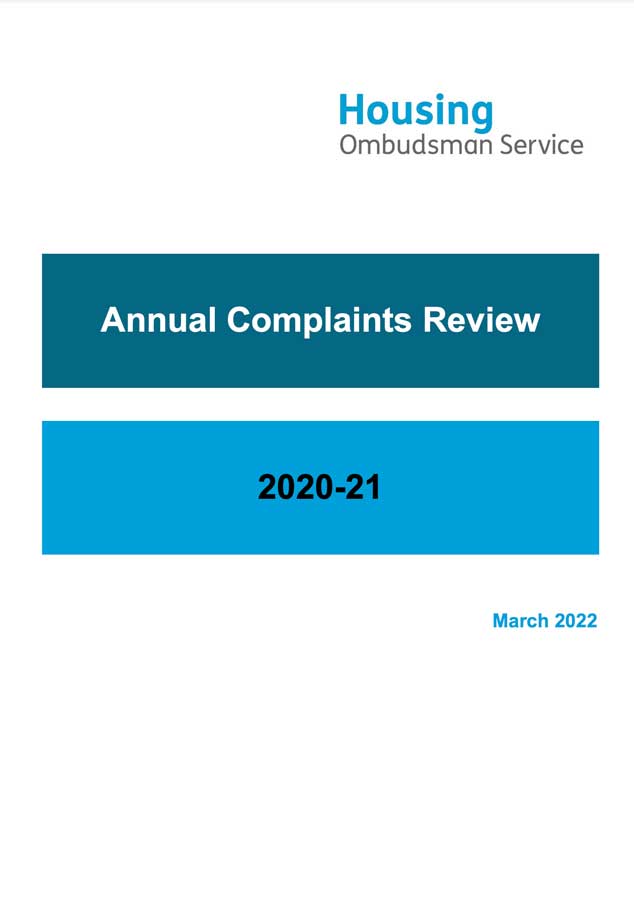Complaint handling
How complaints received by the Housing Ombudsman differ between councils and housing associations

STRATEGY
Image: Istock

Richard Blakeway
Housing Ombudsman
Every year the Housing Ombudsman handles thousands of complaints relating to councils. Our role is to look at how councils with stock manage those homes, either directly or through an arm’s-length body. So, is there a difference between what we see with councils compared with housing associations?
The starting point is to consider our inaugural Annual Complaints Review, published earlier this year. This analysed the findings we made on investigations during 2020-21 and we hope it will become essential reading for everyone who wants to understand the insights that complaints offer.
Top three complaints
The report considered complaints overall and the top three areas we investigate (repairs, tenant behaviour and complaint handling), breaking these down by type, size and location of landlord. While we don’t receive a disproportionate share of complaints about councils, there are some differences with housing associations.
Most notable is tenant behaviour, including anti-social behaviour, where councils appear to have a lower overall uphold rate of around one-third of complaints, compared to half for housing associations. The wider responsibilities of councils may provide an explanation and consideration of this will form part of our ongoing in-depth investigation into noise-related complaints.
Repairs issues higher
However, it is repairs that form the bulk of complaints for both councils and housing associations – this will come as no surprise to readers. The maladministration rate is marginally higher for councils (around 6% more) but with inclusion of our reasonable redress finding – where something went wrong but was put right in the complaints process – both landlord types have the same uphold rate at around 68%.
This is far too high and reflects the complex challenges facing the sector. Many landlords are working on fixing this, and we would identify clear lessons from our casebook. This includes better intelligence and data on homes and more effective record-keeping practices. Landlords also need to think about communication – not only about the frequency but also the tone.
The sector is concerned about increasing disrepair claims, so it needs to ensure complaints processes are effective and complaints are not closed prematurely if the pre-action protocol on housing conditions is commenced. There are many other valuable lessons in our Spotlight reports on issues such as heating and hot water and leasehold, which council landlords should consider in order to identify good practice.
Complaints teams crucial
It is critical landlords resource and respect their complaints teams for there to be strong resident-landlord relationships. The self-assessment against the strengthened Complaint Handling Code (note the deadline of 1 October 2022) is an opportunity for landlords to review if they are delivering a positive complaints handling culture. Professionalism here is key.
The Housing Ombudsman and Local Government and Social Care Ombudsman are also looking at a joint-complaint handling code across our jurisdictions with councils, based on the Housing Ombudsman’s Code, so this is an area where councils need to focus.
“The Housing Ombudsman and Local Government and Social Care Ombudsman are also looking at a joint-complaint handling code across our jurisdictions with councils, based on the Housing Ombudsman’s Code, so this is an area where councils need to focus.”
Landlord accountability
This brings me to accountability and transparency. Openness is an essential part of an Ombudsman’s work. It demonstrates the difference complaints make and promotes learning and improvement. With elected members, the dynamic is different between councils and associations, and in practice this means we have seen an open debate at a local level on complaint effectiveness.
I have seen town halls across England debating the Spotlight report on damp and mould. I have seen individual investigations discussed at scrutiny committees, with officers providing assurance around their policies and procedures to prevent something similar happening again.
This has led to members and officers talking openly about how they have learnt from complaints. Given it is essential for governing bodies to be engaged in complaint handling to create the right culture and behaviours, the open debate about these challenges should lead to improvements for residents.



